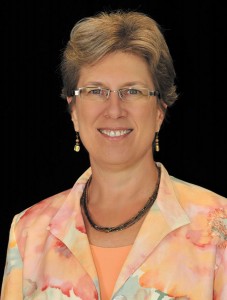Property owners in parts of north DeKalb County will see their taxes rise under a new tax millage adopted by the DeKalb County Commission.
At the same time, the commission presented a list of demands for spending oversight changes, including a reduction in the number of county employees.
The tax rate for residents in unincorporated areas of DeKalb will rise by 4.35 mills, from about $8 on $1,000 of taxable value of a property to about $12.35. That means the taxes on a $200,000 house could rise by about $180.
The tax hike for Dunwoody residents will be lower, rising 2 mills, meaning the taxes will rise from about $8 to nearly $10 on $1,000 of taxable property value.
That’s because Dunwoody provides some of its own services, like police. That could mean a tax hike of roughly $76.
The levy passed the DeKalb commissioners 4-3 at their July 12 meeting. It’s meant to raise about $50 million.
DeKalb officials are trying to fill a $13 million hole in the county’s $529 million budget. The holes gets bigger each time property prices fall.
Besides those money woes, DeKalb has recently had its credit rating cut, which makes borrowing more expensive. And a new state Supreme Court ruling makes the county share certain taxes with a number of cities in the county. About $5 million raised through the tax increase is supposed to go into savings in 2012.
In a related budget motion, the commission created a separate bank account for the police, who are planning to bring 50 new officers online this year with their newly-secure earmarked money.
“The public wanted the independent police millage” and the transparency of a dedicated fund, said northeast DeKalb Commissioner Elaine Boyer. Under the new policy, nearly six mills of what taxes are already collected in unincorporated DeKalb go straight to the police.
Overall, “it was difficult” to accept the tax rise, said north DeKalb Commissioner Jeff Rader, “because many of my constituents have not seen a house price fall.”
So their tax bills haven’t fallen, as have bills in other neighborhoods where housing values have fallen dramatically. But the key to his vote was an accompanying resolution that lays out 11 budget reforms.
Most immediately, the council sought to abolish all unfilled county jobs unless an offer has already been made. By DeKalb CEO Burrell Ellis’ math, that’s 700 county jobs cut over two years.
The council resolution also allows a three-day government shut down some time in the next 12 months.
If the plan is followed, “very soon you will see objective analysis from the commission through the office of internal auditor,” predicted Rader, a strong advocate of hiring an auditor.
The auditor would review all county departments and operations and recommend changes for savings and efficiency.
The commission plans to hire an auditor this year.
Other “desires” spelled out in the resolution include garbage pickup once a week instead of twice in unincorporated areas of DeKalb. The council also suggested that Ellis should move toward more privatization and outsourcing when he drafts the next county budget.
“I know that you don’t want a property tax increase. I don’t want a property tax increase,” said Commissioner Kathie Gannon. But she compared the property tax bill to Georgia Power bills – they keep going up, but everyone has to pay.
“DeKalb has been living on borrowed time,” she said.
Rader and Gannon voted for the budget, Boyer against.
About 30 percent of every standard county tax bill is set by the County Commission.
Much of the rest is charged by the DeKalb County Board of Education. On July 11, the BOE voted to keep its millage rate unchanged at 22.98 mills.

